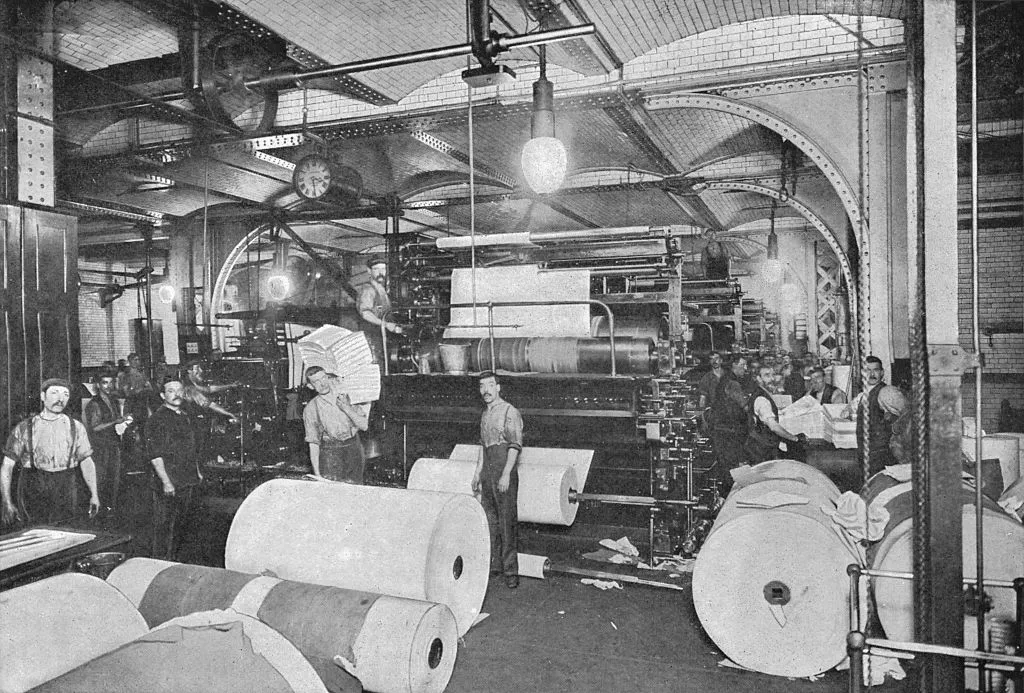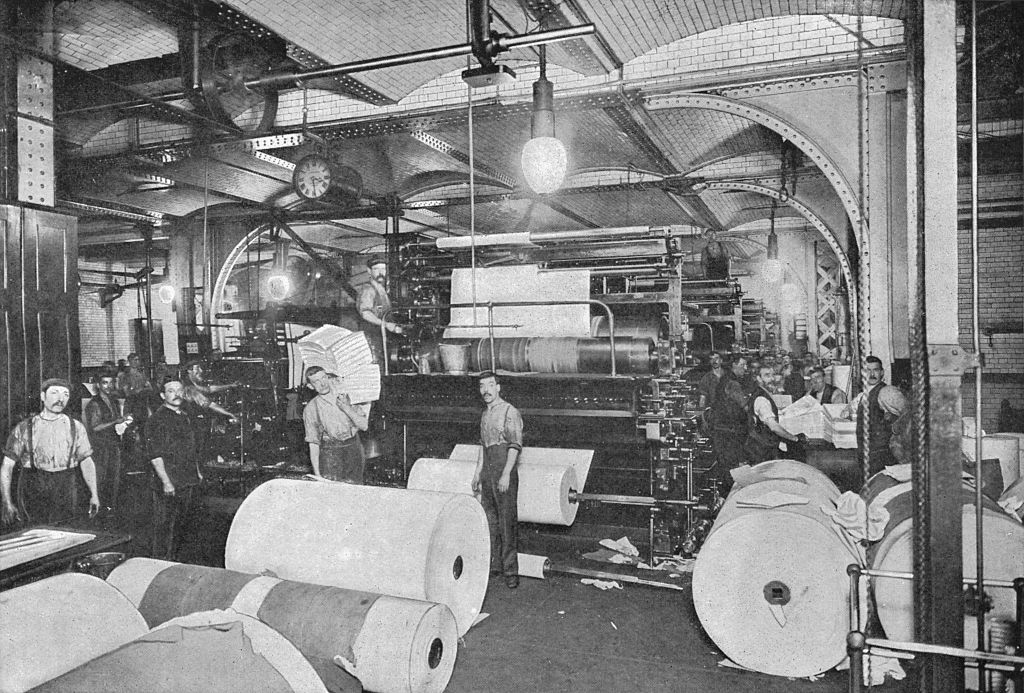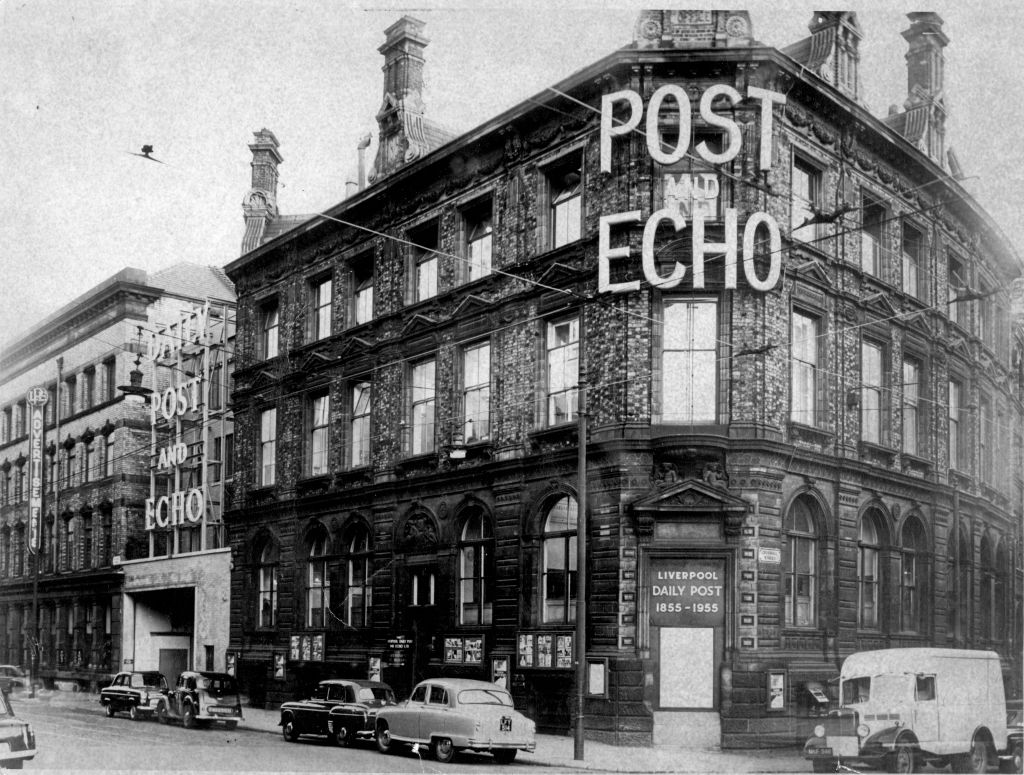Why is local media having a meltdown? And why I'm writing for The Post

David Lloyd helped build SevenStreets from the ground up. For four years it was at the forefront of Liverpool's independent media. Here he explains why he's on board with us
Dear readers — “what’s this?” I hear you thinking. “Sunday content from The Post? Don’t they already spoil us enough.” Well we do, and we hope very much you enjoyed Leo Hardwick’s twisting Victorian tale of adultery and death yesterday, but here’s a bonus read. It isn’t actually original content, but a couple of weeks back Post contributor David Lloyd wrote it for his SevenStreets site.
Long before The Post had even breathed its first breath, Seven Streets was the swashbuckling home of the best independent journalism in Liverpool. They got sued a few times for their efforts, but they created something that many of you will remember fondly and when it eventually ended it left a real dearth. That’s why we were thrilled when David offered to help us out.
We’re sending this piece out again because we think it captures what we’d like to achieve with this project (and it says nice things about us). It’s a bit feisty, but it demonstrates that quite clearly that something has really been lost with the decline of local media in this country and city. We have — of course — sought David’s permission to re-publish. So if you missed it, you’re in luck, and if you didn’t, it’s so damn good you might as well read it twice anyway.
For those of you receiving this message who are already paying subscribers, thank you greatly. We’ve got a big investigative piece in the works that’s hoovered up a lot of our resources lately, but we’re really excited for you all to read it. Without your support these types of projects would be impossible. And for those who aren’t members, you’re very much appreciated too, but do consider hitting the button below if you can. With another 300 or so of you on board we’ll be pretty much financially sustainable. And then we can say we’ll be sticking around for good. Lovely.
My Dad doesn't get angry. He’s a blue. He’s learned to accept stoicism as his friend. But when I called round last night, he was on one. He was waving a leaflet in my face. “Look at that. One pound bloody thirty for that. Who wants to read that crap? If it’s not crime it’s puzzles. There’s nothing to read in it.”
Turns out he was holding the Echo. It was, indeed, thinner than an After Eight. And not quite as nutritious.
We’ve sort of accepted, with a resigned shrug that, online, the Echo isn’t a newspaper, it’s a content farm. A graveyard of bad grammar, cynical clickbait and not-at-all-local stories about Kate Garraway or something (not very) shocking culled from Mums Net. It’s shit. Move on.
But the evening, sorry, morning paper, doesn’t have to stoop so low. It could, if it wanted, look past the PR, press releases and low-rent crime stories and treat its readers (yes, even my Dad) as if they were intelligent.
It could set its own agenda, and commission brilliant features. Find its own stories. Allow its writers to show us how they can write. Not pad its pathetically few pages with filler. Today’s paper (November 14) had a paltry 15 local stories in it. How many of them were about crime? Ten. Two-thirds of its already-low reporting. Is that the city you know?
“Liverpool is not a wealthy city and we’re in the midst of a cost-of-living crisis, so I would have concerns about [a paid for online] model” editor Maria Breslin said at the Culture Media and Sport select committee hearing in Whitehall a couple of weeks back, begging for a hand out.
Clearly she doesn’t mind making people pay £1.30 for a couple of pages of press releases, shameless rubber-necking and racing tips.
Breslin talked passionately about her ‘boots on the ground’ writers. But their boots are usually under the desk, cut and pasting pictures from Google Street View to highlight a story about a zero-star rated restaurant, when they could be — let’s take a wild stab — going there, and talking to people who’ve eaten there, rather than nabbing comments someone’s Tweeted after they read something on Tripadvisor. That’s not journalism. It’s homeopathy.
For the loyal 22,000 or so readers — like my parents — the Echo merely limps on in limbo, not really sure what its role is any more. When I worked for TrinityMirror, 15 years ago, everything was focussed on keeping the beast alive. I edited the website Liverpool.com and once wrote a piece slagging off fashion store Cricket for selling fur. It lit up the comments section.

“How do you get away with writing stuff like that?” the Echo features editor asked me one day at the water cooler. “We could never write anything like that, we’re not allowed to piss off the advertisers.”
We did it because none of the bosses read what we were writing. They were too busy counting the cash from the TJ Hughes adverts, the classifieds and death notices to notice. And then I got made redundant.
But even then there was still a sense of the paper being connected to the beat and hum of the city it served, it felt alive. Just.
Further back, when I was in Half Man Half Biscuit in the 80s, we dreamt of having a good review from Penny Kiley, the Echo’s curmudgeonly but brilliant music writer. When we did — sort of — it felt every bit as validatory as a piece in the NME. Such was the Echo’s clout. Such was the quality, and the passion, of its writers, and the space they were given to actually write.
All empires crumble. In time, the Echo’s will too. It’s inevitable, and it’s already started.
Sure, there are still good writers there. But if there’s a future for local news, they clearly haven’t found out what it is yet. Correction. They think they have. Page views.
So much of local media seems to be in the midst of a nervous breakdown right now. Jittery. Unsure of its place in the world. So in that respect, at least, it’s reflecting the city it serves. There’s the owner of Liverpool Confidential seemingly trying to ruin a (brilliant) Liverpool restaurant because it refuses to pay to be promoted — which it doesn’t need to. This is a man who — when I dared to set up a food magazine — accused me of liking pictures of ‘young boys’ fondling meat by their crotch. (It was a picture of a very grown up butcher slicing a rib of beef on a table).
Then there’s a website called Liverpool Business News, which thinks that any reasoned opinion around development is anti progress, when, just perhaps, it’s ‘pro-debate’. Something of which there’s precious little around here.
A piece I wrote for The Post recently summed it up. I’d asked developers Peel if I could have a mooch around Wirral Waters. You can read it here if you like.
It was, I think, 2,000 honest words. What I saw, what I felt as a local, what I thought it meant for the future. The good, the bad, the bits I wasn’t sure about. Because not being sure about something is OK too. We need more uncertainty, not less around here.
Apparently, this kind of writing still has the power to shock some people. Tony McDonough an ‘award winning’ writer (he tells us that on his Twitter) from Liverpool Business News tweeted: “David Lloyd has strained every sinew in this article to find something to be sour about. It’s his raison d'être.”
Which amused me, because Peel replied saying how much they’d enjoyed the feature: “Great article! Challenging but fair. Come back in 12 months and see how we’re doing.” Maybe that’s because Peel doesn’t need the likes of Tony McDonough as their friend quite as much as he needs them.
Have we collectively lost our bottle? Do we have to just accept investment and growth at all costs, and breathlessly print press releases without question, and call it media?

When local journalists like McDonough forget what critical thinking looks like because they’re too busy posting press releases about people applying for a job in a new pub, we’re in a whole lot of trouble.
That’s why I write for The Post. Even though I don’t agree with everything it publishes. And why I’d love it if you supported it. The Post needs roughly the same amount as the Echo. But that’s for a whole week’s worth of quality writing. Not one night’s serving of Sudoku and shoplifters.
I think opinion, good writing and authenticity are what we need more of. A plurality of voices. A space to lean in and listen. Disagree. Engage and debate.
If we fail to dig a little deeper, look closer, get out more and invite debate we’re left with the cynical click-bait of Reach, the ugly extensions on top of Millennium House, and editors allegedly trying to stop students finishing journalism courses because they don’t like their outbursts on Twitter. Imagine having the time to do that, as a busy editor, and no time to find brilliant stories in this city?
Of course, I tried it with SevenStreets ten years ago. I spent over ten grand in legal fees trying to fight such luminaries as Signature Living, and self-appointed PR gurus who had really close ties with Joe Anderson’s inner circle, and got their clients the breaks. Obviously I was barking up the wrong tree there, right?
The psychologist Stephen Pinker talks about how, increasingly, we’re terrified of upsetting our tribe. That’s definitely true around here. What we believe, Pinker says, isn’t based on the evidence, but what makes us popular with our mates. Magnify that to the size of a city and look around you. Nepotism, corruption and stagnation.
When The Post ran Mollie Simpson and Harry Shukman’s feature questioning the veracity of everything Liverpool councillor Gerard Woodhouse says, a reader accused the publication of being ‘factional’. As if The Post was some splintering political party, dealing with a revolt on the back benches. How dare it criticize a hero of the left?
The more we read people who we know we’re going to disagree with, the better. Because, sometimes, they might be right.
So here’s what I think. Give The Post a chance. If you’ve ever read anything on here, or anything I’ve written over the years, please think of subscribing. It would be great to be paid for what I love doing. Even a little. Then I could do more of it. Other cities have great local media. It’s insane that we’re a brilliant, creative city — a city of writers and thinkers and makers and doers — and yet we don’t have enough spaces to gather around and just talk.
My dad’s onboard. I really hope you will be too. It might make me less sour.
But I’m not making any promises.

Comments
Latest
Free city centre parking is ending. But the controversy rages on
Tourism is worth £6 billion to the city region. Are visitors getting their money’s worth?
Why are Liverpool’s streets so dirty?
Introducing: Answers in The Post
Why is local media having a meltdown? And why I'm writing for The Post
David Lloyd helped build SevenStreets from the ground up. For four years it was at the forefront of Liverpool's independent media. Here he explains why he's on board with us